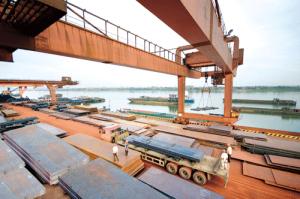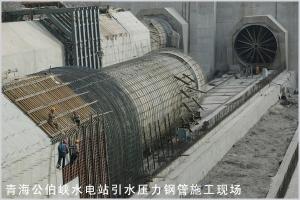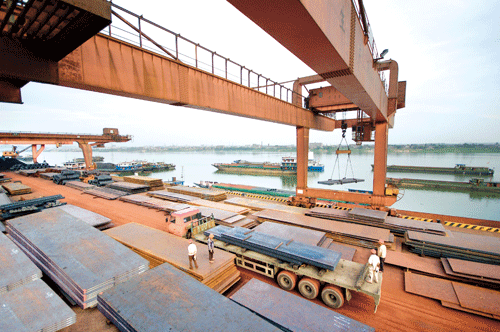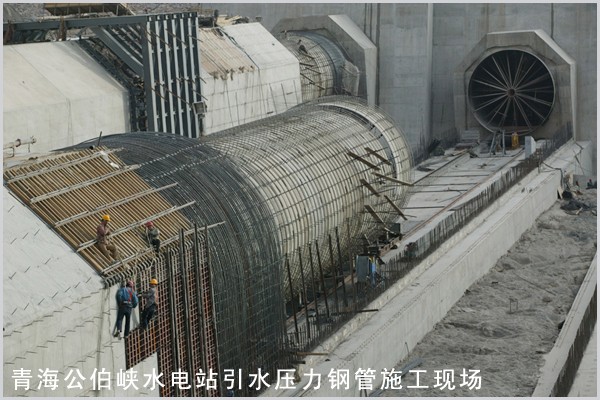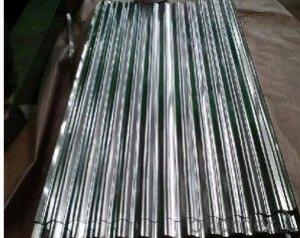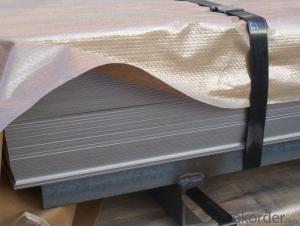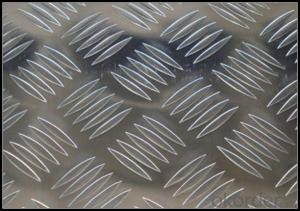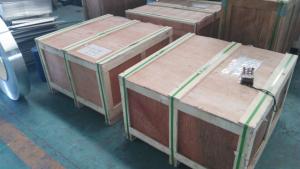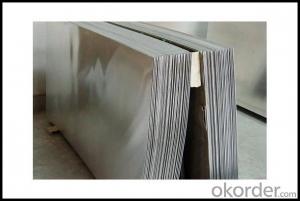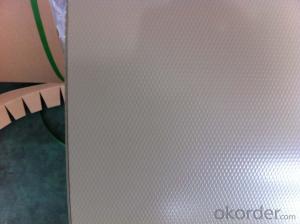Wuyang WQ960D plate steel production
- Loading Port:
- China Main Port
- Payment Terms:
- TT OR LC
- Min Order Qty:
- -
- Supply Capability:
- -
OKorder Service Pledge
OKorder Financial Service
You Might Also Like
High-strengthquenched and temperedsteel
WQ960type high strengthquenched and temperedsteel,makingthe pressure hullpieces,deeptidesaving, high-pressurestructural parts, aerospaceequipment, armored vehicles, manufactureof various types ofconstruction machinery,such as mininganddrilling rigused invarious types ofconstruction, power shovel,electric wheeldump trucks,mining vehicles, excavators,loaders,bulldozers,various types of cranes, coalhydraulic supportand othermachinery and equipment andwear-resistantstructural partsWQ960Dproduction process
Hot metal pretreatmenttop and bottom blowingconverter→→ LFfurnace→ RHvacuum treatment→→billetcontinuous castingbilletheatingtest →→high pressurewater descaling→→finishing→ ACCroughingwater-cooledcooling bed→straightening→cooling →finishing→Shottemperingtreatment →→→finished product storageperformance test.UsingLF,feedSi- Ca - Balines andRHvacuum treatment,to ensurecleanlinessof steel.
WuyangsteelS960QL,high-strength steelseries of varieties.
Wugangyield strength590Mpa ~ 960MPa,is widely used inthe manufacture100 tonsabovethe tubfloor,pumping machinery, excavators,truck crane, crawler cranes, coalhydraulic supportand so on.
Steel Type | thickness(mm) | Carbon content(%) |
S960Q、S960QL WQ960D、WQ960E | 10~30 | ≤0.56 |
31~60 | ≤0.61 | |
Mechanical Properties
specification (mm) | Re (Mpa) | Rm (Mpa) | A (%) | Shock temperature (℃) | AKV (J) | Cold-formed d=3a | ||
20 | 1010 | 1070 | 14.5 | -40℃ | 52 | 63 | 41 | good |
20 | 1000 | 1060 | 16 | -40℃ | 46 | 40 | 46 | good |
25 | 995 | 1050 | 16 | -40℃ | 76 | 53 | 61 | good |
25 | 1000 | 1050 | 15.5 | -40℃ | 66 | 55 | 63 | good |
25 | 1000 | 1060 | 15 | -40℃ | 66 | 74 | 46 | good |
50 | 975 | 1030 | 16 | -40℃ | 60 | 65 | 63 | good |
Quenchedtypewear-resistant steel:SS590Q Q550D WQ590 WH70Q S690Q S690QL WQ690D S690QL1 WDB620E WH785E WNM360A WNM360B WNM400A WNM400B
Wear plates:WNM360E.WNM400E.WNM450A.WNM500A.WRZ360.WRZ400A.
High-strengthquenched and temperedsteel:WQ690D.S960Q.WH100QD.WQ960E.S960Q.WQ890D.A514GrQ/A517GrQ/E
690/EQ70.A514GrF.
- Q: What are the different sizes of steel sheets available?
- Various sizes of steel sheets are readily available to cater to a range of applications and industries. The dimensions of steel sheets can vary depending on factors such as thickness, width, and length. In terms of thickness, steel sheets are commonly found in gauges ranging from 7 to 30. The gauge number indicates the thickness, with higher numbers representing thinner sheets. Thinner sheets, like those with a gauge of 30, are often used for flexible applications. On the other hand, thicker sheets, like those with a gauge of 7, are typically employed for heavy-duty applications that require strength and durability. When it comes to width, steel sheets are offered in a variety of choices. The most frequently seen widths include 36 inches, 48 inches, and 60 inches. Customized widths can also be obtained to meet specific requirements. Regarding length, standard lengths for steel sheets are typically 96 inches and 120 inches. These lengths are widely used in various industries. However, similar to width, length can also be customized to suit specific needs. It is important to note that the availability of different sizes of steel sheets may vary depending on the supplier and the specific grade of steel used. It is advisable to consult with a steel sheet supplier or manufacturer to determine the exact sizes available for a particular application.
- Q: What is the difference between a perforated and expanded steel sheet?
- Both the perforated steel sheet and the expanded steel sheet belong to the category of metal sheets, which are frequently utilized in various industries. However, they differ significantly in terms of how they are manufactured and the resulting properties they possess. When it comes to perforated steel sheets, the production process involves the action of punching or drilling holes into a solid steel sheet. Depending on the intended use, these holes can come in a variety of shapes, sizes, and patterns. The presence of these holes allows for the passage of air, light, sound, or fluids, making perforated steel sheets highly suitable for applications that require ventilation, filtration, or acoustic properties. This type of sheet is commonly utilized in industries such as architecture, automotive, filtration, and mining. In contrast, expanded steel sheets undergo a distinct manufacturing process known as expanding. This process entails cutting and stretching a solid steel sheet, which results in a mesh-like pattern characterized by diamond-shaped openings. The stretching process not only imparts strength and rigidity to the sheet but also reduces its weight. This versatility makes expanded steel sheets ideal for a wide range of applications, including walkways, platforms, fencing, grating, and reinforcement. To summarize, the primary distinction between perforated and expanded steel sheets lies in their manufacturing processes and the resulting properties they exhibit. Perforated steel sheets feature holes that are either punched or drilled into them, enabling the passage of air, light, sound, or fluids. On the other hand, expanded steel sheets are formed by cutting and stretching a solid sheet, creating a mesh-like pattern with diamond-shaped openings. Both types of sheets offer unique advantages and are selected based on the specific requirements of the intended application.
- Q: How do you calculate the yield strength of a steel sheet?
- The yield strength of a steel sheet can be calculated by dividing the maximum amount of stress that the sheet can withstand before it permanently deforms by the cross-sectional area of the sheet.
- Q: Can the steel sheets be easily engraved or etched?
- Engraving or etching steel sheets is a widely adopted practice across several industries, including automotive, aerospace, and jewelry. It involves employing specialized tools and techniques to craft intricate designs, patterns, or text on the surface of the steel sheets. The hardness and durability of steel make it an ideal material for engraving, as it can withstand the pressure and cutting force necessary for creating detailed engravings. Furthermore, the sleek surface of steel sheets ensures precise and unclouded etching outcomes. Nevertheless, it is crucial to acknowledge that the ease of engraving or etching may vary depending on the specific type and grade of steel employed.
- Q: Are the steel sheets resistant to warping or twisting?
- Yes, steel sheets are highly resistant to warping or twisting. Steel is known for its exceptional strength and rigidity, making it less susceptible to deformation under stress or pressure. The inherent properties of steel, such as its high tensile strength and low thermal expansion, contribute to its resistance to warping or twisting. Additionally, steel sheets are often manufactured with precise dimensions and uniform thickness, further enhancing their resistance to deformation. This makes steel sheets a reliable and durable choice for various applications that require stability and structural integrity.
- Q: What are the common thicknesses for aluminum-coated steel sheets?
- The common thicknesses for aluminum-coated steel sheets typically range from 0.016 inches (0.41 mm) to 0.040 inches (1.02 mm), depending on the specific application and desired strength requirements.
- Q: Can steel sheets be used for fire-rated doors?
- Yes, steel sheets can be used for fire-rated doors. Steel is a commonly used material for fire-rated doors due to its inherent fire-resistant properties and durability.
- Q: What is the typical price range for steel sheets?
- The typical price range for steel sheets can vary depending on factors such as size, thickness, grade, and market conditions. However, generally speaking, steel sheets can range in price from around $20 to $200 per sheet.
- Q: Can steel sheets be used for agricultural equipment?
- Yes, steel sheets can be used for agricultural equipment. Steel is a durable and strong material that can withstand the harsh conditions and heavy use associated with agricultural activities. It is commonly used in the construction of farming equipment such as plows, harrows, and seeders. Steel sheets can also be shaped and welded into various forms to meet specific agricultural needs.
- Q: What are the different testing methods for steel sheets?
- There are several testing methods for steel sheets, including visual inspection, hardness testing, tensile testing, impact testing, bend testing, and ultrasonic testing. Visual inspection involves examining the surface for any visible defects or imperfections. Hardness testing measures the resistance of the steel to indentation, which can indicate its strength and durability. Tensile testing evaluates the steel's ability to withstand pulling forces, while impact testing measures its resistance to sudden shocks or impacts. Bend testing assesses the steel's flexibility and ability to withstand deformation. Ultrasonic testing uses sound waves to detect internal flaws or defects in the steel. These methods are commonly used to ensure the quality and reliability of steel sheets in various industries.
Send your message to us
Wuyang WQ960D plate steel production
- Loading Port:
- China Main Port
- Payment Terms:
- TT OR LC
- Min Order Qty:
- -
- Supply Capability:
- -
OKorder Service Pledge
OKorder Financial Service
Similar products
Hot products
Hot Searches
Related keywords
